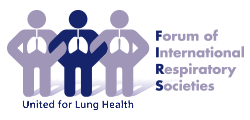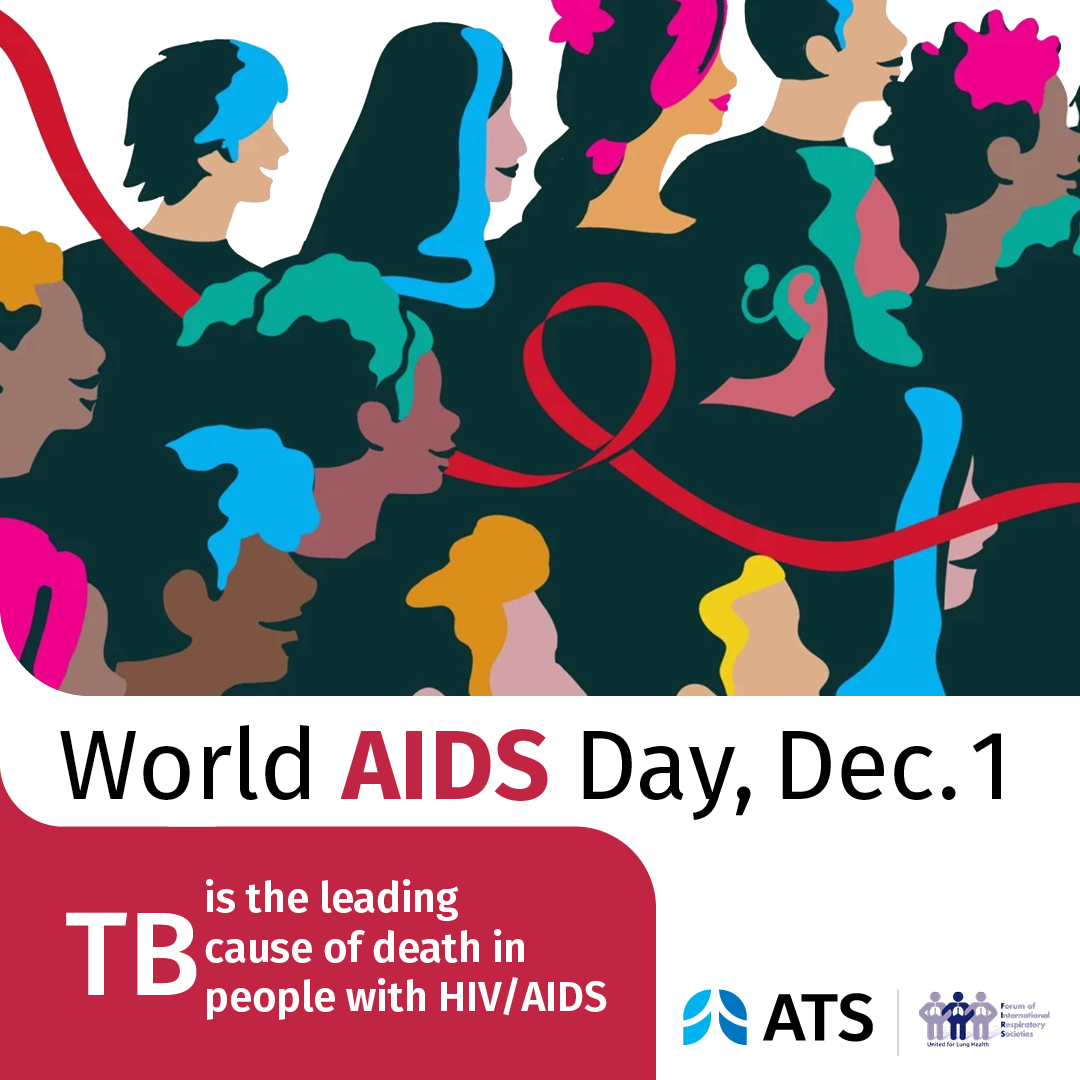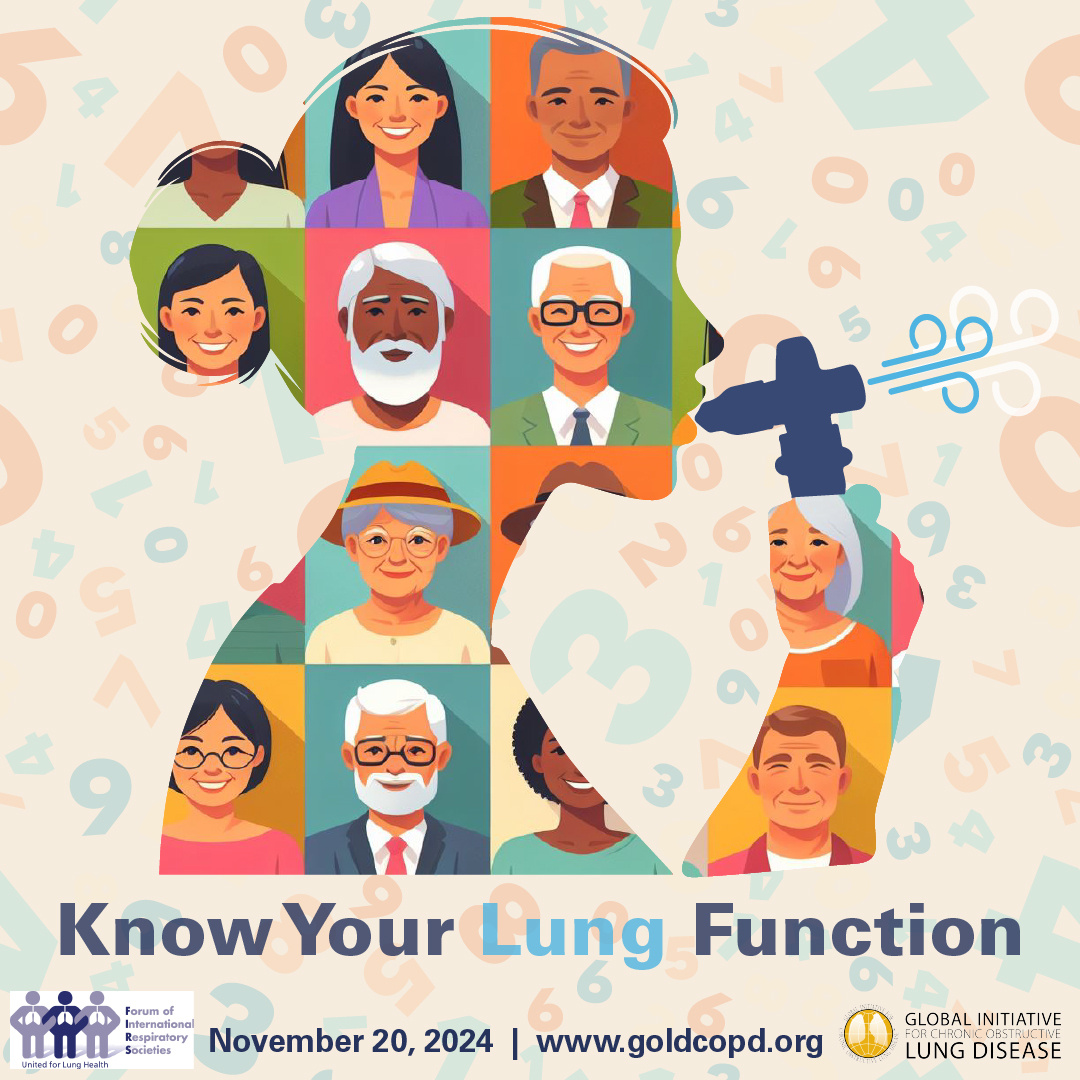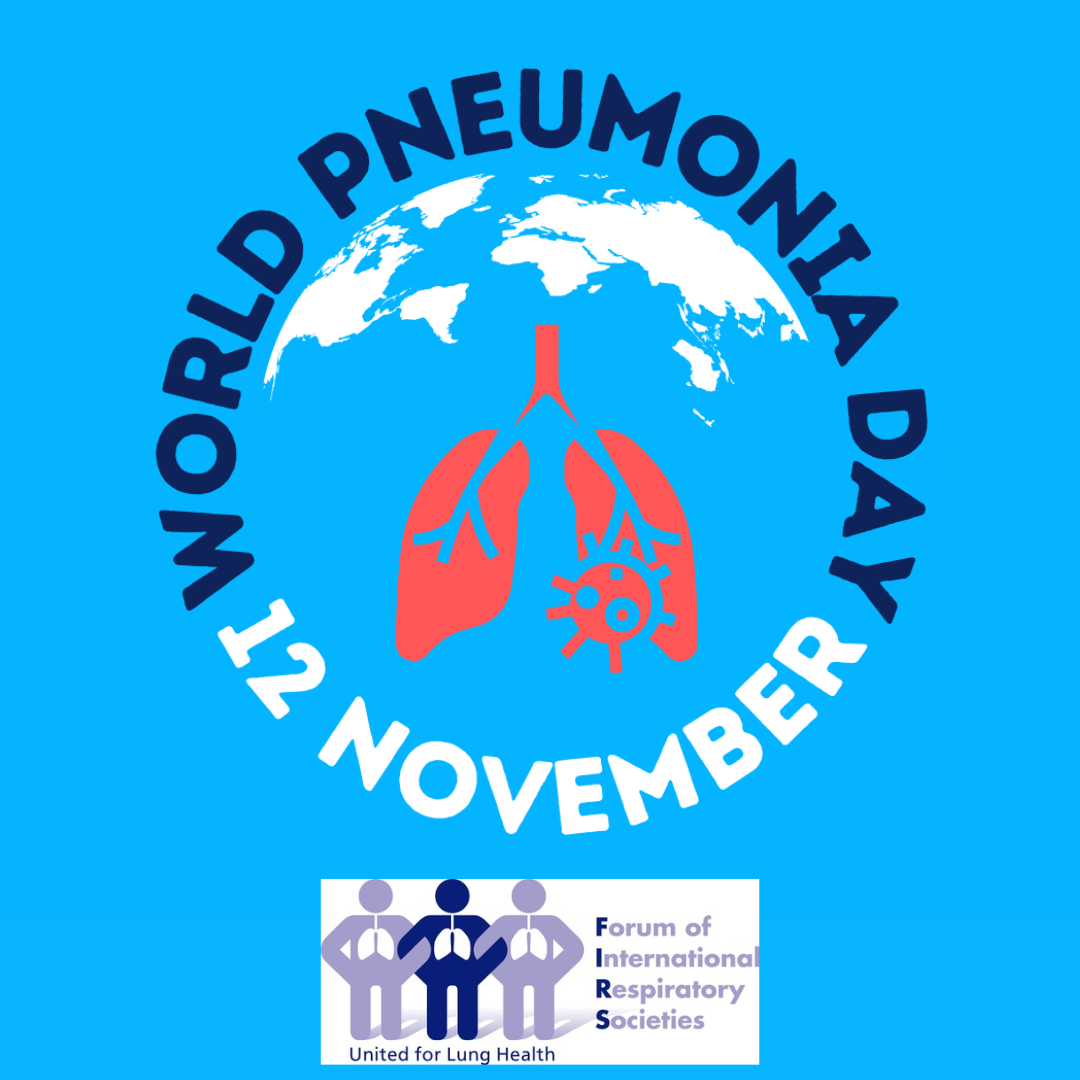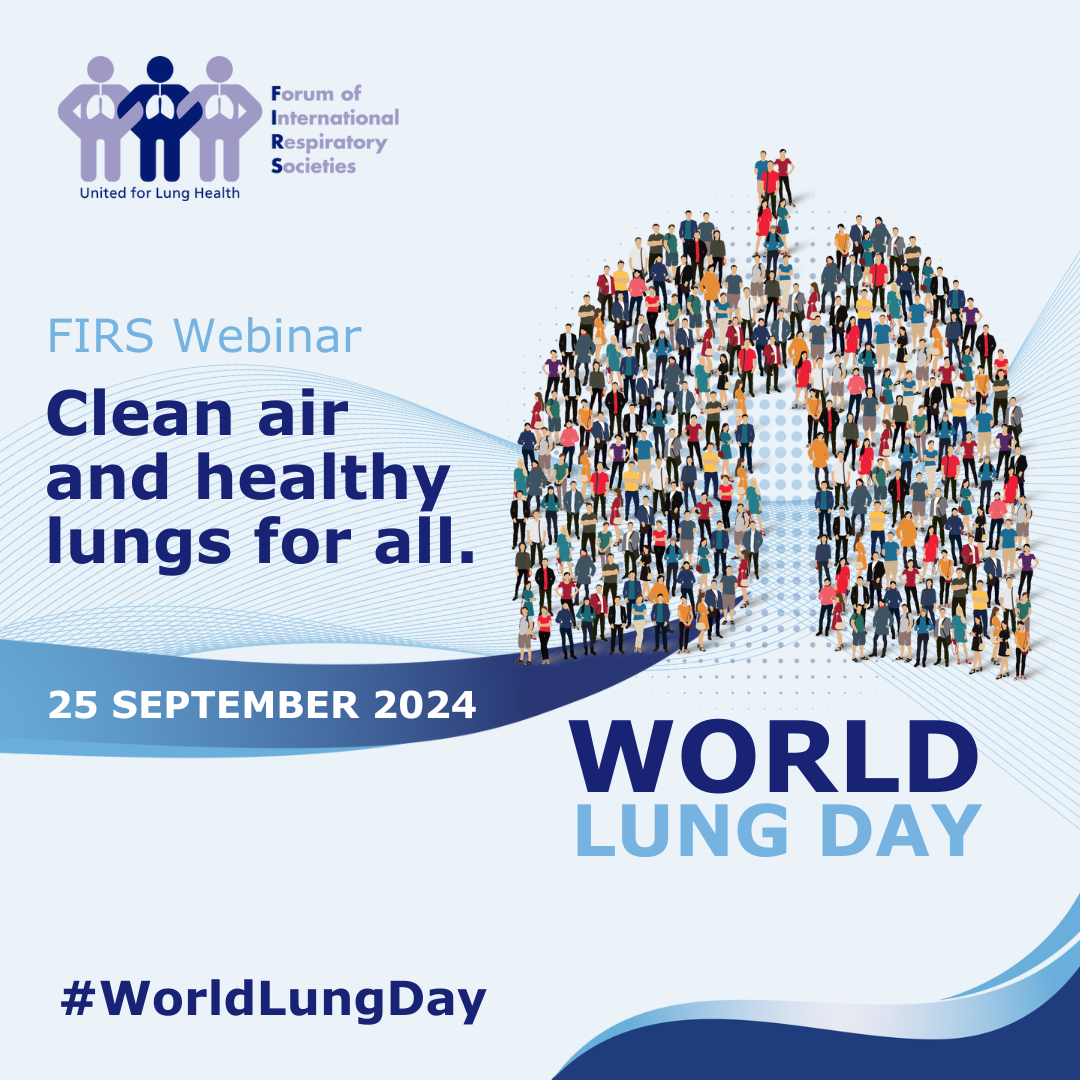In support of World Lung Cancer Day on August 1, the Forum of International Respiratory Societies (FIRS) stresses the importance of symptom awareness and early detection to diagnose and treat lung cancer.
While lung cancer is not the most prevalent cancer (second to breast cancer), it is the most common cause of cancer death. With more than 2.2 million new cases of lung cancer in 2020 and 1.80 million deaths, globally, lung cancer is responsible for 1 in 4 cancer deaths. According to the World Health Organization, lung cancer kills more people yearly than breast, colon and prostate cancers combined.
“World Lung Cancer Day is an opportunity for all members of the Forum of International Respiratory Societies to collectively increase awareness of symptoms and the use of screening not only for lung cancer, but for lung health generally, as well as to highlight smoking as a major risk for disease,” says FIRS President Professor Heather Zar. “Avoiding smoking and smoke exposure is key to reduce illness from lung cancer and other lung diseases. Knowing the early signs of lung cancer and using appropriate screening is key for early detection, to reduce illness and mortality.”
To recognize lung cancer earlier, it is crucial to be aware of the symptoms. The most common symptoms of lung cancer are:
- A cough that does not go away or gets worse
- Coughing up blood or rust-colored sputum (spit or phlegm)
- Chest pain that is often worse with deep breathing, coughing, or laughing
- Hoarseness
- Loss of appetite
- Unexplained weight loss
- Shortness of breath
- Feeling tired or weak
- Recurring infections such as bronchitis and pneumonia
- New onset of wheezing
In addition to knowing the signs of lung cancer, equitable access to screening options worldwide is vital for reducing lung cancer deaths through early detection and treatment.
To identify and diagnose lung cancer in its earlier stages, it is recommended to seek lung cancer screening with a low-dose tomography (also known as low-dose CT or LDCT) where available. If the individual is an eligible smoker or a former smoker, lung cancer screening is recommended even if they are not experiencing any signs or symptoms.
Resources:
The Global Impact of Respiratory Disease report outlines major causes of respiratory disease, including lung cancer, and lays out recommendations for global action.
A complete list of recommended guidelines for lung cancer screening, “Screening for Lung Cancer CHEST Guideline and Expert Panel Report,” can be read through the journal CHEST®.
About the Forum of International Respiratory Societies
The Forum of International Respiratory Societies (FIRS) is an organisation comprised of the world's leading international respiratory societies working together to improve lung health globally. The goal of FIRS is to unify and enhance efforts to improve lung health through the combined work of its more than 70,000 members globally.
FIRS comprises the American College of Chest Physicians (CHEST), American Thoracic Society (ATS), the Asian Pacific Society of Respirology (APSR), Asociación Latino Americana De Tórax (ALAT), European Respiratory Society (ERS), International Union Against Tuberculosis and Lung Diseases (The Union), Pan African Thoracic Society (PATS), the Global Initiative for Asthma (GINA), and the Global Initiative for Chronic Obstructive Lung Disease (GOLD).
